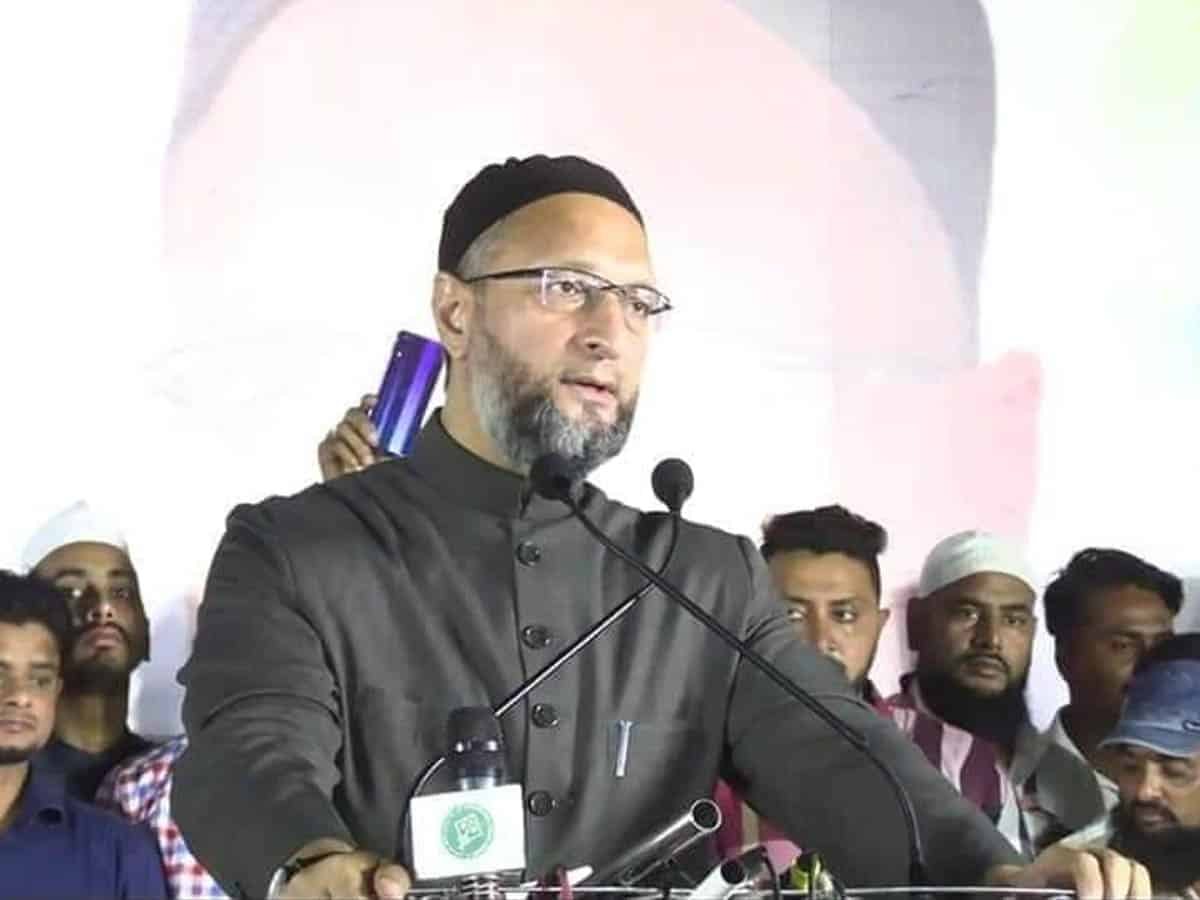Hyderabad: The All India Majilis-e-Ittehadul Muslimeen (AIMIM) will contest from seven assembly constituencies in the ongoing West Bengal elections. The party on Tuesday announced that it will be putting up candidates in the Itahar, Jalangi, Sagardighi, Bharatpur, Malatipur, Ratua and Asansol Uttar seats. Three days prior, siasat.com reported on April 3 that the AIMIM would contest five to eight seats in the state.
In the run up to the West Bengal elections, the AIMIM hit more than one roadblock, after the (Hyderabad Lok Sabha member of Parliament) Asaduddin Owaisi-led party was first snubbed by Indian Secular Front’s Abbas Siddiqui, and later when its in-charges quit. Siddiqui, an influential cleric and head of the Furfura Sharif dargah in the eastern state, chose the Left-Congress alliance instead of Owaisi.
Siddiqui’s decision disrupted Owaisi’s entire gameplan, which was to contest about 20-odd seats each with the ISF, and to try and win constituencies where Muslim voters are about 40% (about 57). A senior AIMIM leader, who did not want to be quoted, said that the party is contesting seats mostly in Murshidabad and Malda district, in constituencies where the Muslim vote share is about 80% or higher in general.
In the run up to the WB polls, the AIMIM was all charged up after Owaisi announced his decision to contest the West Bengal elections few months ago. The Hyderabad-headquartered party had won five seats in the Bihar state polls last year. However, the main difference then and now was that the AIMIM could rope in rebels from major political parties, who could steer the ship.
Moreover, it was hit by internal resignations, which also further upset its chances. In a major setback to the AMIM, ahead of the polls in March, the party’s state in-charge Zamirul Hasan had resigned, alleging that Owaisi came to West Bengal with the intention of working for the BJP.
In the 2016 West Bengal elections, TMC managed to win 211 seats, while the BJP, which is staking claim to form the next government, won just three seats. The CPM bagged 26 assembly constituencies, while the Congress 44 seats (both had an alliance). The total number of assembly seats in West Bengal stand at 294.
The BJP, which was a no-show in 2016, sprung a surprise and managed to win 18 out of the 42 Parliamentary seats in the subsequent 2019 elections, while the TMC was reduced to winning just 22 seats. The Congress bagged the other two seats. “In the 2019 general elections, the BJP managed to secure 57% of the Hindu vote share, while the TMC secured the remainder of it, and also about 70% of the Muslim votes. Mamata, due to consolidation of Muslim votes now, will win the polls,” opined the AIMIM leader.
Political consultant Sumit Anand said that in West Bengal, where Muslims account for nearly 30% of the state’s population, it is believed that the community can play a decisive role in about 100 seats. It is to be seen how the AIMIM will do on its own, now that it is not part of any alliance in the state. “I think it’s strategically very smart. These are rural constituencies except for Asansol Uttar, and has been closely contested between AITC, CPIM & Congress in recent years,” he added.
Anand also pointed out that Ithar and Sagardighi have a considerable number of Muslim including refugees and SCs, while Malatipur, Ratua, Jalangi and Bharatpur are Muslim-majority constituencies.

